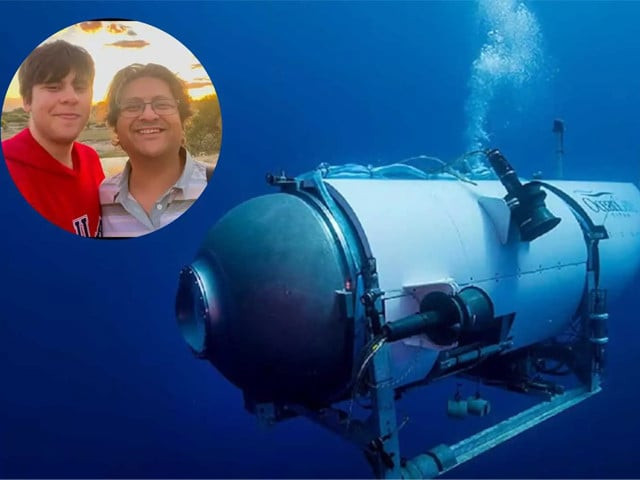It was the year 1989 when I first saw and met Shahzada Dawood. He was my class fellow when I started my O’levels at Aitchison College. I saw a guy with unruly hair, an unkempt look, who was seemingly unaware of his surroundings. I did not know, and honestly from his demeanour nothing suggested, that he belonged to one of the richest families in Pakistan.
Seemingly lost and always smiling with a twinkle in his eyes, he looked more like an extremely down-to-earth and simple person rather than some super rich kid. We were together for three years and during that time developed a good friendship. I still vividly remember the talks we used to have, and even back then he showed signs of being a very liberal and progressive person. Yes, he was aware that he came from a privileged background, but that awareness did not instil any arrogance in him, which is often the case with most people born with a silver spoon in their mouths, but rather he boasted a sense of responsibility. I remember him talking about giving women more rights, improving Pakistan’s education system, and the need to increase our exports. He was humble, genuine and above all, empathetic; the last quality, in my opinion, that makes us human.
When the news broke that a submersible had gone missing, like millions of others, I was also captivated by the story, and despite initially not knowing the identities of the passengers, I prayed for their safe return. However, it became another matter altogether when I found that Shahzada and his young son were among the five passengers. Suddenly I felt an overwhelming nervousness. Now the episode had assumed a personal dimension and had transcended general human empathy and morphed into intense concern.
I was now following the story far more closely, and as the news about the dwindling oxygen reserves kept coming, I was becoming more and more edgy. I kept praying to God, “please save my friend from that kind of death”.
When the news finally broke that the vessel had perished, I went into deep shock. For the next 24 hours, all I could constantly see flashing before my eyes was his face. The only consolation in that dreadful moment was the fact that the vessel implosion prevented them from a slow and much more painful death.
I took to social media and, to my disappointment, saw the kind of opinions that were being shared by countless people. Unfortunately, the fact that he was rich had become the focus of every conversation. There was no unconditional mourning as some were offering condolences while the majority were just spewing hate and coming up with strange opinions and misplaced comparisons. When did it become okay to make memes about someone’s disappearance or tragic death just because he’s a billionaire? Is that what our humanity has come to as a society?
I have seen posts which portray him as a “stupid, corrupt billionaire” undertaking some kind of “lavish adventure”.
“Why could he not spend that money which he spent on that tour on helping the poor?”
“Why is he getting attention when hundreds of Pakistanis died while trying to migrate to Europe?”
The phrase “corporate exploitation” was making rounds, ironically from commentators who themselves represented the middle to upper middle class, which is more privileged than the common masses.
It left me deeply hurt, to be honest, because the loss of life of any individual is a tragic event, particularly when it occurs in such a manner. And here was an outstanding individual who had done a lot for his country and its people. Him and his family are leading philanthropists and have helped thousands of low-income individuals, particularly in the fields of education and healthcare. They have done so without trying to gain any political advantage. Shahzada personally contributed far more out of his pocket while maintaining a low profile. In fact, the entire family has remained low-key and therefore has always been well-respected. The Dawood Foundation has provided immense help to thousands, and continues to do so, making a real difference. Moreover, his family-owned companies are amongst the biggest employers in the country.
We are all born into a class over which we don’t have control. Some of us are more privileged compared to others, and this is particularly true if you are living in a capitalist kind of society. This kind of economic system is more geared towards efficiency and will always result in some sort of inequality. Yes, some will be far richer than others, and this comes from the structural design and modus operandi of capitalism. If he was born rich, he also recognised his privileges and did his best to repay society. His views and efforts regarding gender rights are well known.
It’s easy to sit on a laptop and mock charity or philanthropy as a “gimmick” to justify wealth, compared to making an actual difference in society. Such people are just indulging in virtue signalling.
Secondly, his decision for such an expensive trip was his personal choice, one that was paid for by his own money. He was not a statesman who took an expensive trip on the taxpayer’s money. He was an explorer who wanted to go on an adventure, and he wanted to make memories with his son. We all want to do that, and given resources and courage, we all would do that. All fathers want to treat their sons and daughters in the best way possible. He did the same in accordance with the resources he had. What’s society’s problem here? He kept that tour private, and it would have remained so if not for this tragedy.
All this hue and cry about the lopsided media attention, a major reason why this episode got so much attention was that it disappeared, and for a few days, there was hope that it would be found. It was a race against time which captivated the world. Let’s compare it to the Chilean miners’ incident, which had no billionaires and yet attracted a lot of media attention. Likewise, the Thailand caves rescue again did not have any billionaires, and for several days, the global media was focused on it. If the news instead said that the submarine had imploded rather than missing, there would not have been this kind of frenzy. Reality is that it’s human nature to be more fascinated by situations where people are trapped.
What the media covers is also controlled by what the viewers and readers want to see, what they are most interested in. And while the migrant boat tragedy received extensive coverage, it is you, the viewers and readers, who were more interested in the Titan vessel tragedy. That’s not on the media, that’s on you.
And please stop making comparisons with the Greece boat incident. While I understand that the rationale for making the comparison is to point out racial and income inequalities, the two incidents are contextually different and even took place at different geographical locations with the involvement of different authorities and governments.
The Greece boat incident is a colossal tragedy which should be politicised to put pressure on the Pakistani state. It should be highlighted to emphasise the point of why we have failed in such a dismal way that our young men and women are ready to take such a risk just to flee the country. The right way to highlight that issue is by not making these comparisons, as it takes the emphasis away from domestic conditions and makes it about international discrimination.
Moreover, the comparison only ended up making Shahzada, a kind and outstanding individual, into a villain. He was not materially richer than most of us but also richer in empathy, humanity and kindness than most of us.
Rest in peace, brother. It was a privilege to have known you personally.



COMMENTS (8)
Comments are moderated and generally will be posted if they are on-topic and not abusive.
For more information, please see our Comments FAQ